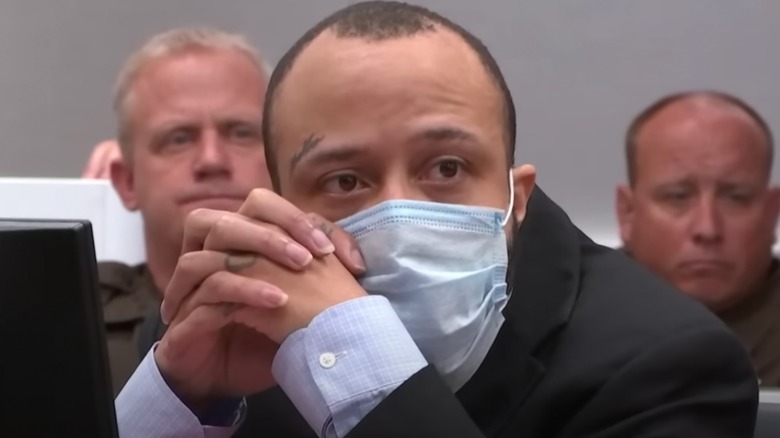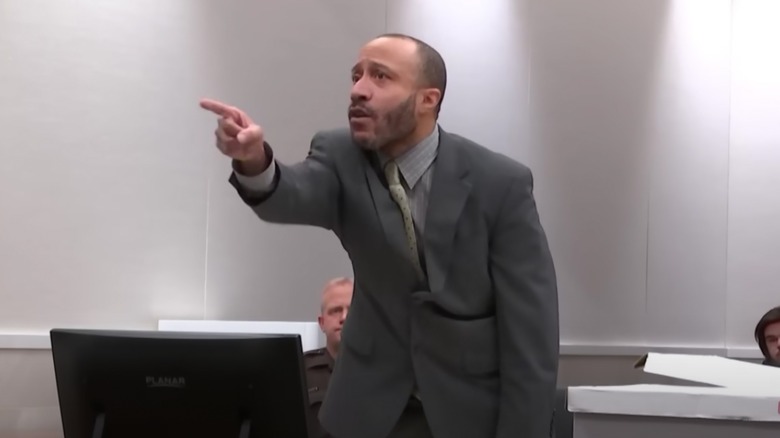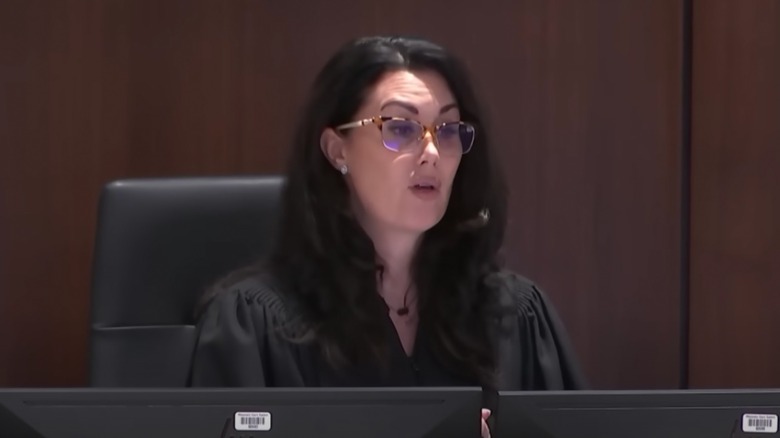Darrell Brooks Broke The No. 1 Rule In Court Proceedings
Darrell Brooks isn't a household name, but few people in the United States will forget his crime. In 2021, the then-39-year-old drove his SUV into a Christmas parade, killing six people, including an 8-year-old boy and three women who were in the parade as "dancing grannies." His trial, which ended with a guilty verdict on October 26, 2022, was described by The New York Times as "circuslike." Brooks was facing 76 discrete charges and a potential sentence of life in prison. Most people would try their best to wriggle out of such straits. Brooks, however, seemed to enjoy them.
A self-declared sovereign citizen, he interrupted the court proceedings over and over with absurd requests and provocative outbursts. There are about 300,000 of these so-called sovereign citizens in the United States alone, though according to the Southern Poverty Law Center an exact number is mostly an educated guess. Sovereign citizens consider themselves exempt from the law.
But Brooks' antics were not restricted to outbursts and non-cooperation. His choice of attorney made the trial much longer and more difficult than it needed to be. Darrell Brooks' lawyer was one Darrell Brooks: he represented himself.
A fool for a client
There's an old saw, sometimes attributed to Abraham Lincoln, that the man who represents himself in court has a fool for a client — Lincoln would know: he was an accomplished lawyer. Even good lawyers — especially good lawyers — avoid self-representation.
Have you ever thought of why that is? The Philadelphia criminal defense firm of Richard Fuschino has listed seven reasons not to on its blog. Admittedly, a defense lawyer wants people to hire a lawyer — otherwise, they're out of a job. But it's hard to argue with the points raised. For one thing, most people simply don't have the understanding of court procedures to keep up. Discovery, rules of evidence, the 11 pre-trial motions (via Law Dictionary), and the rules concerning examination: all these are complicated and nuanced. Lawyers study them for years before they even consider the bar exam. A layman doesn't stand a chance.
No excuse
But what about a lawyer, who is already well familiar with the procedures of court? Couldn't she save several thousand dollars and do the job herself? Not so fast, advises Fuschino's blog, even if you were theoretically competent to examine or cross-examine yourself, like Woody Allen in "Bananas," The emotional stress of facing criminal or civil charges is enormous.
The stress of handling an entire case, even with help from paralegals and assistants, is possibly worse. Representing yourself in court means combining the worst forms of those two kinds of hellish stress. There's no room for slipping up or forgetting some piece of evidence on the kitchen table. You have to be cool, deliberate, and logical in a situation that sends people raving mad. You could miss some perfect repose in the examination, sheerly out of distraction; you could incriminate yourself by mistake; you could make any number of poor strategic decisions; and, of course, you could end up melting down altogether in front of the judge, who, as Fuschino reminds us, will not help you. Darrell Brooks may be a hopeless case, but if you, reading this, ever find yourself facing charges, do the right thing. Get a lawyer.


